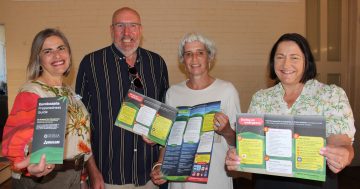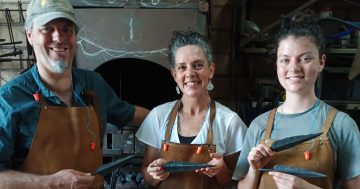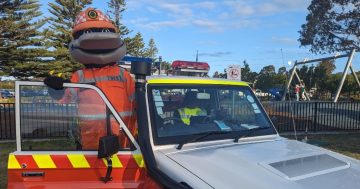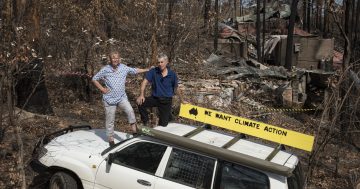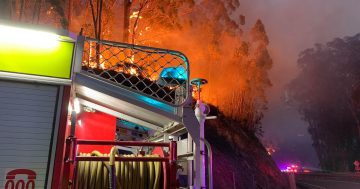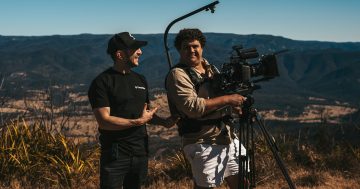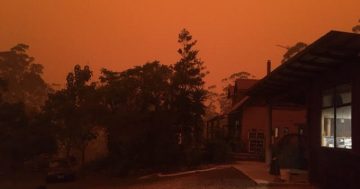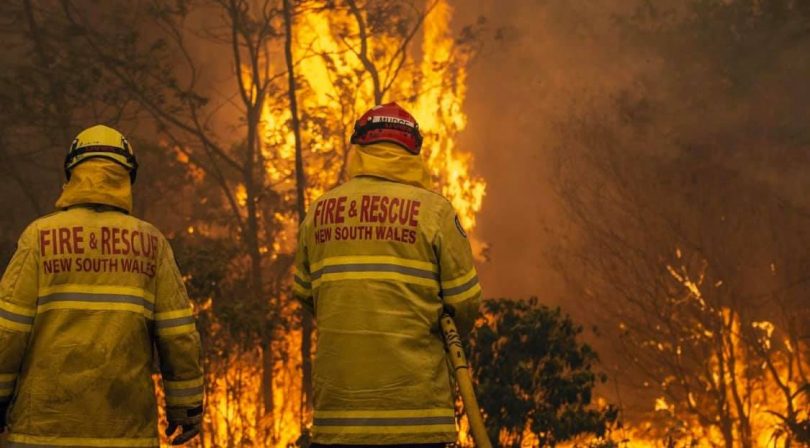
Brett Henderson says the NSW Government’s path of disaster response, prevention and preparedness primarily focuses on emergency response, but the community has been left out. Photo: NSW Rural Fire Service Facebook.
The phrase ‘the fires changed everything’ is often repeated across the bushfire-affected regions of southeast NSW since the Black Summer of 2019-2020. There are now calls to rethink and change the approach to emergency management to include a formal community voice among the services tasked to plan and respond to natural disasters.
With the Bushfires Royal Commission now in full swing, stories of fires so big that seconds were the difference between life and death are surfacing, and there is hope that with this knowledge lessons will be learned and changes will be made ahead of the inevitable next time there is a drought with a bushfire season that follows.
The effect of the fires stretched well beyond burned shire boundaries, and one man with a connection to the South Coast and a lifetime of experience in emergency management is devoting his PhD to an examination of models of emergency management in the hope that when the inevitable arrives, the response will work better.
Brett Henderson is a doctoral student in public safety at Charles Sturt University. He went back to study after retiring from a lengthy NSW Public Service career which included 36 years in the NSW Police Force, and in the role of Commander of Strike Force Toronto, a three-year investigation after Sydney’s 2001-2002 bushfires.
“I am not a newcomer to the game,” he says. “I have had two decades of operational and theoretical experience in emergency management, primarily in NSW.
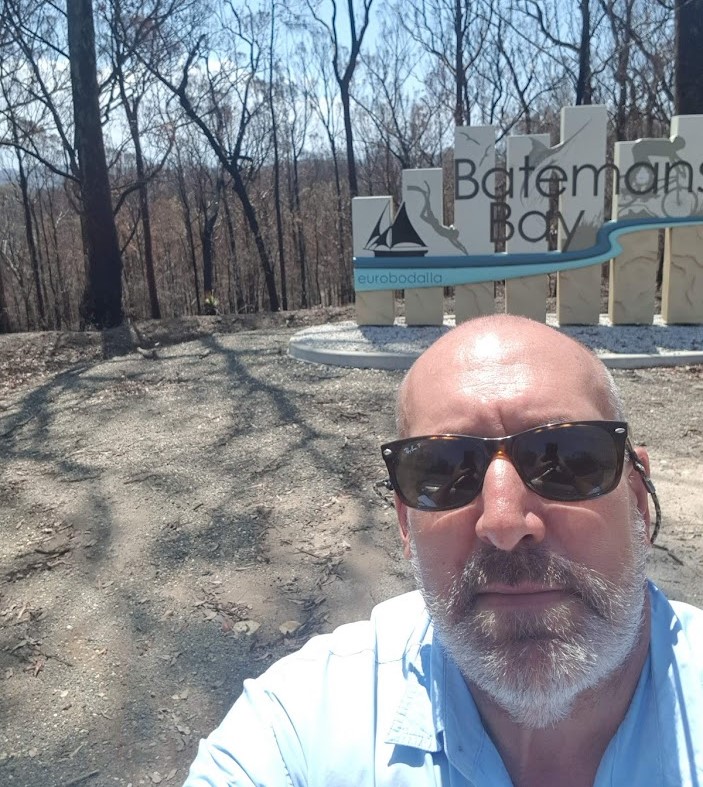
Brett Henderson’s selfie he sent to his wife to let her know he was OK, taken in Batemans Bay in January 2020 during the Black Summer bushfires. Photo: Brett Henderson.
“I was a long-time student while working; I have completed a Master’s in Emergency Management; and, for the past three years, I have been studying for my doctoral degree in emergency management.
“The focus of my studies is how the community participates in and shares emergency responsibilities in local areas.”
Brett has a lifelong connection to the Eurobodalla Shire, and a family tree that just about qualifies him as a local. Studying his family history, Brett discovered his ancestral roots date back to the first Europeans in the Eurobodalla area.
He says his earliest memories of the Eurobodalla Shire are of annual family holidays staying at Caseys Beach.
“I have the fondest memories of holidaying every year of my life at Batemans Bay until my mid-20s and fishing with dad up the Clyde River in a 15-foot plywood boat named Tallyho,” says Brett.
“My heart was broken when I watched my ancestral seat impacted by the 2019 fires. Straight after the fires were extinguished and the roads opened, I travelled to Moruya to help with the clean up and did some volunteering work until COVID-19 struck.
“I met some awe-inspiring people with a real focus on community. I felt a community spirit and believe that, in my own very small way, I may be able to contribute to a safer Eurobodalla community through my studies.”
Brett says after witnessing the devastation and hearing from locals, he changed the focus of his doctoral studies.

Brett Henderson is examining if there is room at the table for the community in an emergency response. Photo: Bega Valley Shire Council Facebook.
He offers that a better model of emergency management should include a ‘voice of the people’, and he has recently been given approval to undertake studies focusing on the Eurobodalla Shire and to find participants who could provide input into the following question: ‘How does the community share in the responsibility for emergency management?’
“I thought this was an important question after I listened to so many people after the fires and then the floods about how things could be done differently,” explains Brett.
“The model of a community voice into emergency management comes from a 2011 state government strategic paper that outlined a model for community, government and business to manage emergencies. Unfortunately, since that paper was released, not much has happened.”
Brett says the NSW Government has a path of response, prevention and preparedness but “it really focuses on the emergency response – the end user, the community, has been left out”.
“The community knows their landscape and people’s needs the best – they deserve to have a say in prevention and recovery,” he says.
Brett says there are models already in place where the community is a recognised entity involved in the decision-making and planning process.
“The basic idea is to have a community representative body recognised as a structure in the emergency management framework that provides recovery, preparation and prevention,” he says.
Brett is currently seeking input from members of the Eurobodalla Shire community who have some knowledge about how emergencies are managed in the area, or have a vision, idea or concept as to how the community can share in the responsibility for managing emergencies.
If you want to participate in the study, email [email protected].
“I don’t just want to collect information from the community and that ends my research,” says Brett. “I will seek every opportunity to present the findings to the community in whatever way I can. I am committed to contributing to making change.”







